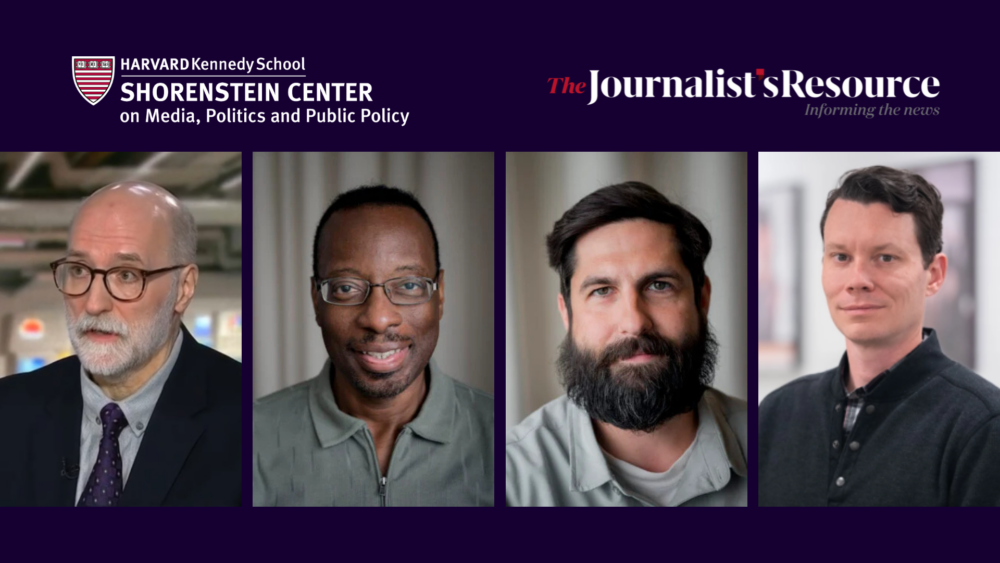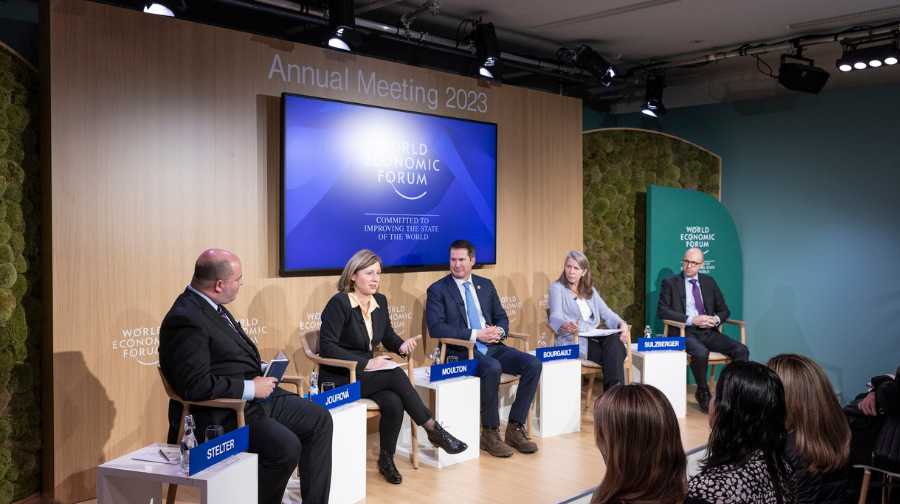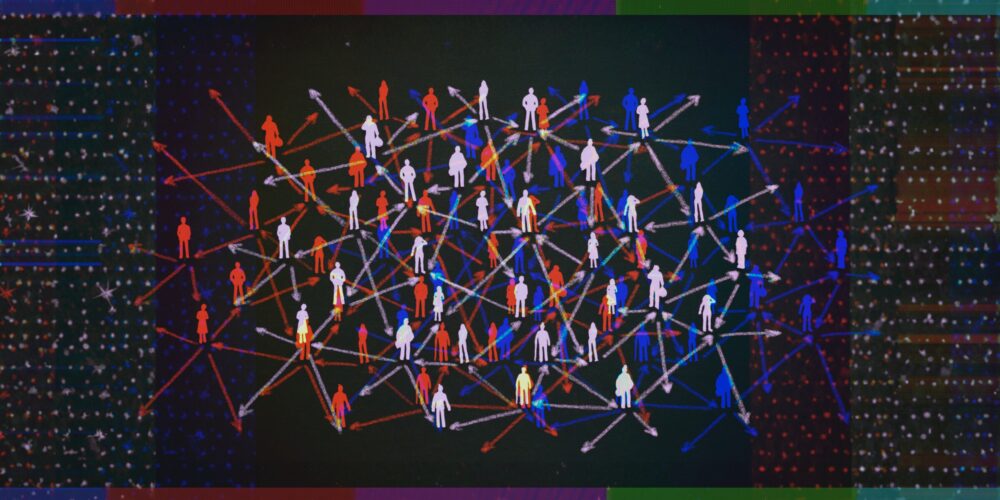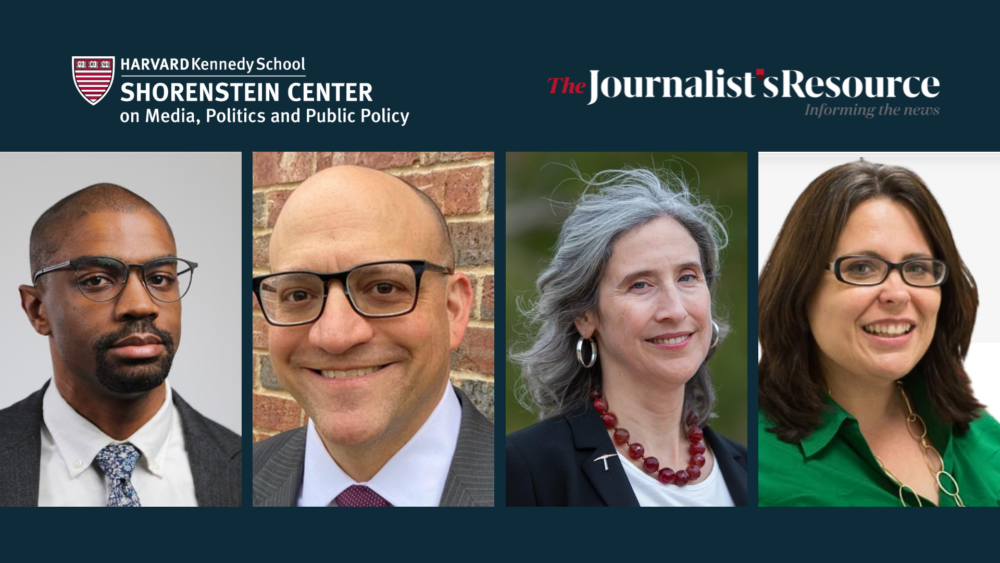
Videos
Digging into crime data to inform news coverage across beats
Commentary

When you’re able to debunk a perverse strain of disinformation with your own eyes, the murky problem comes into crystal-clear focus.
That’s how I felt last week while sitting in a ballroom for the first full day of the World Economic Forum’s annual meeting in Davos, Switzerland. The forum’s powerful chairman Klaus Schwab was speaking on stage while I multitasked by scrolling through tweets on my phone. Suddenly I came across a self-proclaimed “investigative journalist” who declared that — despite what I could see with my own eyes — Schwab was skipping his own conference. He had “pulled out,” the twitterer said, relaying some other user’s unsourced claim.
A few taps away, a sea of other tweets supported the lie. There were copycat posts about his alleged absence; clickbait articles alleging that Schwab was sidelined by health problems; and ugly comments fantasizing that his disappearance meant some nefarious scheme was afoot. Yet in real life he was right in front of me, introducing Ursula von der Leyen, the president of the European Commission.
Von der Leyen delivered a stirring speech in defense of Ukraine and in promotion of clean tech investment. She addressed some of the world’s great challenges while omitting the one that worsens every other: Disinformation. And in that way, she was just like the other politicians in Davos.
Progress on so many fronts is hindered by information pollution. But from my vantage point, this problem is being met with too many shrugs and too little urgency. It’s as if world leaders, business tycoons and the public at large have come to accept that crazed lies will always crowd out facts all over the internet.
To the forum’s credit, organizers included the disinformation crisis on the Davos agenda. I moderated the discussion, which was titled “the clear and present danger of disinformation.” Panelist Jeanne Bourgault, the CEO of Internews, said “we’ve always had pollution in the information environment, but it is really, really bad right now for sure.” A.G. Sulzberger, the publisher of The New York Times, said “there’s no doubt that society seems to have, at some level, accepted how much the information ecosystem has been poisoned.” He quickly added, “I think it’s going to require real, sustained effort from the platforms; from political leaders; from business leaders; and from consumers themselves to reject that.”
Sustained energy is what’s lacking, except at a handful of news outlets, universities and literacy organizations. A recent resurgence of anti-vaccination propaganda has underscored Big Tech’s willingness to platform, and profit from, conspiracy rhetoric. On Elon Musk’s Twitter, nonsense from an anonymous source and a correction from a credentialed expert are often equally weighted, advantaging bad faith actors over good faith fact-checkers.
Now, here’s where I must emphasize that the information landscape is orders of magnitude more complex than facts on one side and lies on the other. Hyperpartisan articles can be factually accurate but nonetheless misleading. Clickbait can be innocuous for most users but confusing for others. Claims around misinformation can be highly subjective and can age very badly when new information becomes available.
But that’s why I raised the example involving Schwab during the Davos session about actual disinformation. Schwab’s attendance at his own forum was an objective fact. The far-right activists and bloggers who pretended otherwise were lying to their fans. Those lies ranked highly in social media search engines, appealing to an audience that wants to believe the worst about faraway gatherings of global power players.
The World Economic Forum live-streams much of the annual meeting, perhaps with an eye toward disarming verbal attacks from the likes of Alex Jones. When Schwab was seen on the live-stream, some of the Twitter commenters who had pushed the lie about his absence immediately switched to new storylines, with some implying that he showed up late under pressure. (False again – I saw him in Davos the day before the conference began.)
My point is not to shield Schwab from scrutiny. On the contrary, criticism of Schwab and the WEF should be welcomed. Schwab has a P.R. apparatus that is more than capable of defending him. And he has joked that an entire book could be filled with the comments that have been made about his work.
Scrutiny is constructive. But imbecility is destructive. Lies and other disinformation fall into the latter camp. Disinformation is the poison that chokes the atmosphere, cements distrust and makes collaboration impossible. That’s why I wished the problem would have been raised more often by more of the officials at the Davos summit.
Sulzberger succinctly explained why it should have been: What disinformation “attacks is trust,” he said during our session. “And once you see trust decline, what you then see is, societies start to fracture. And so you see people fracture along tribal lines. And that immediately undermines pluralism. And the undermining of pluralism is probably the most dangerous thing that can happen to a democracy.”
Conservatives in the U.S. tend to conflate all talk of disinformation as a condemnable call for censorship. But it must be possible to have frank conversations about the problem without shouting down the speakers. After all, people of every country, background and ideological stripe are victims of disinformation.
During the Davos session, speakers and attendees discussed examples of disinformation campaigns in Russia, Venezuela, and the Philippines. Vera Jourová, the European Commission’s VP for Values and Transparency, said it is “so simplified” to assume that the answer to disinformation is content removal. Democracies must work to make sure that “disinformers do not find the feeding ground, the society which is willing to get brainwashed,” Jourová said. And that starts not with mandates or takedown notices, but with education.
Bourgault, for her part, expressed some optimism about the state of the polluted internet, arguing that people are “getting used to navigating it a little bit better.” I wish I could say that I share her ebullience. Accepting the status quo means a collective step backward.

Videos

Commentary

Videos